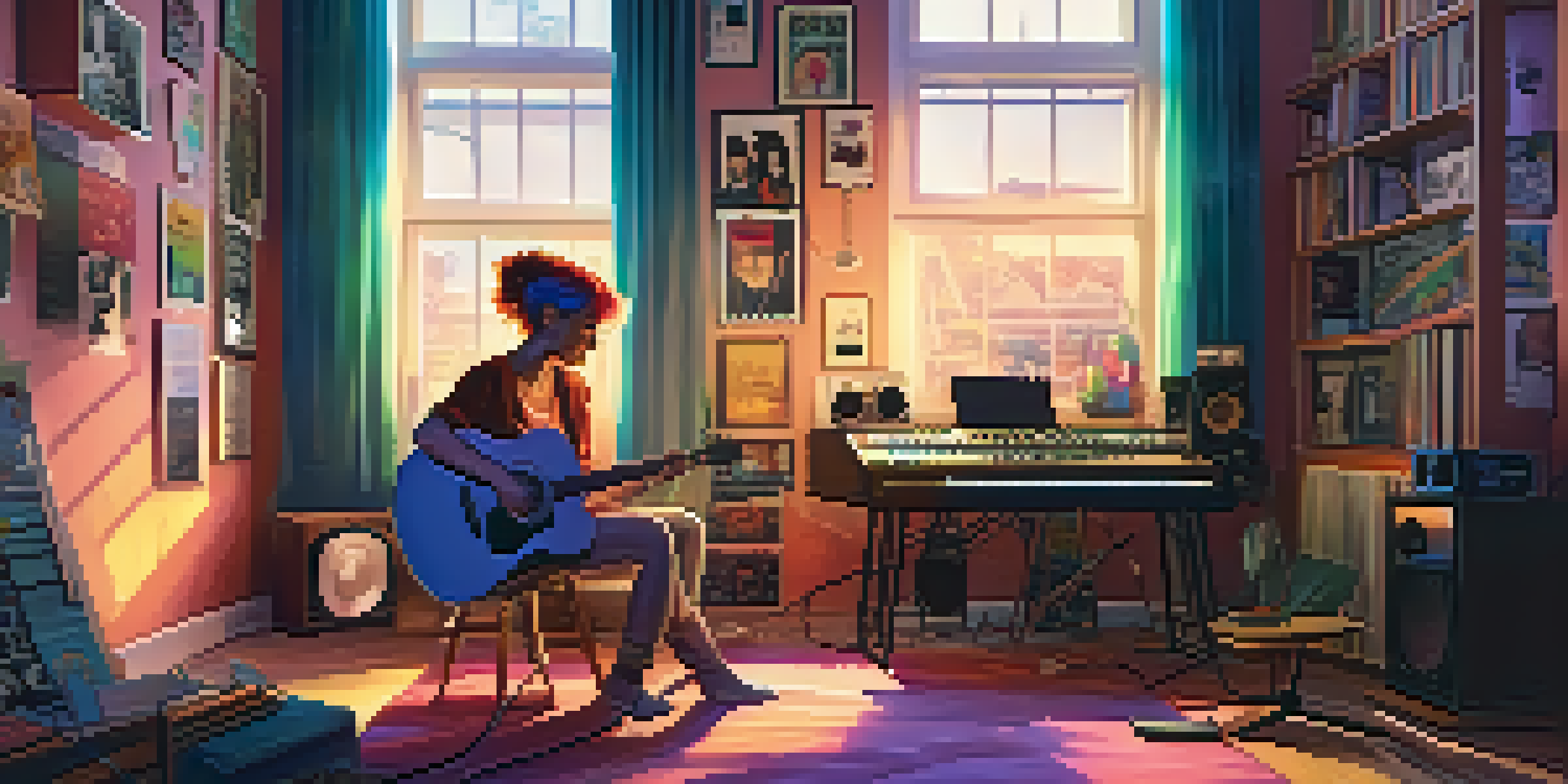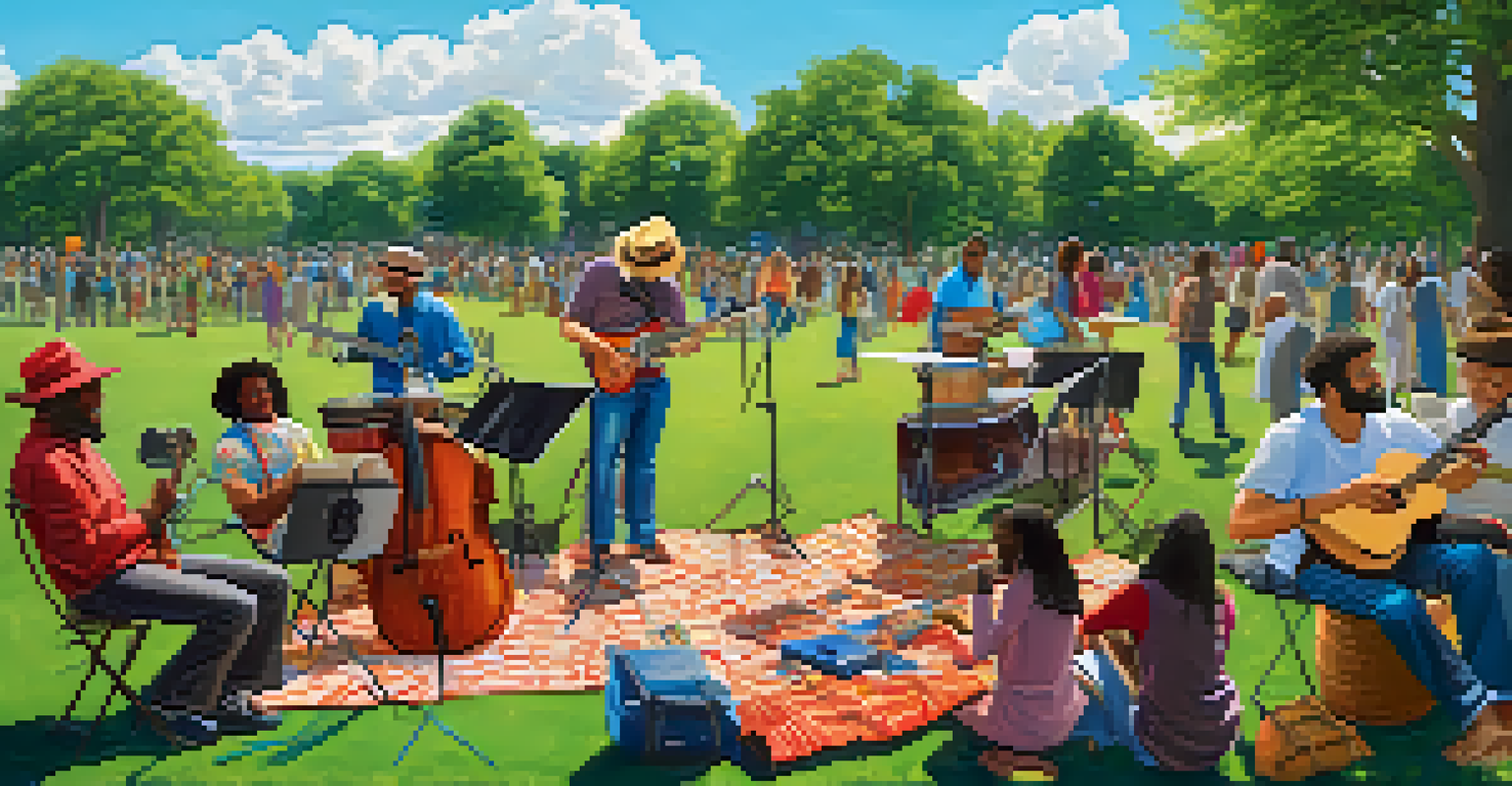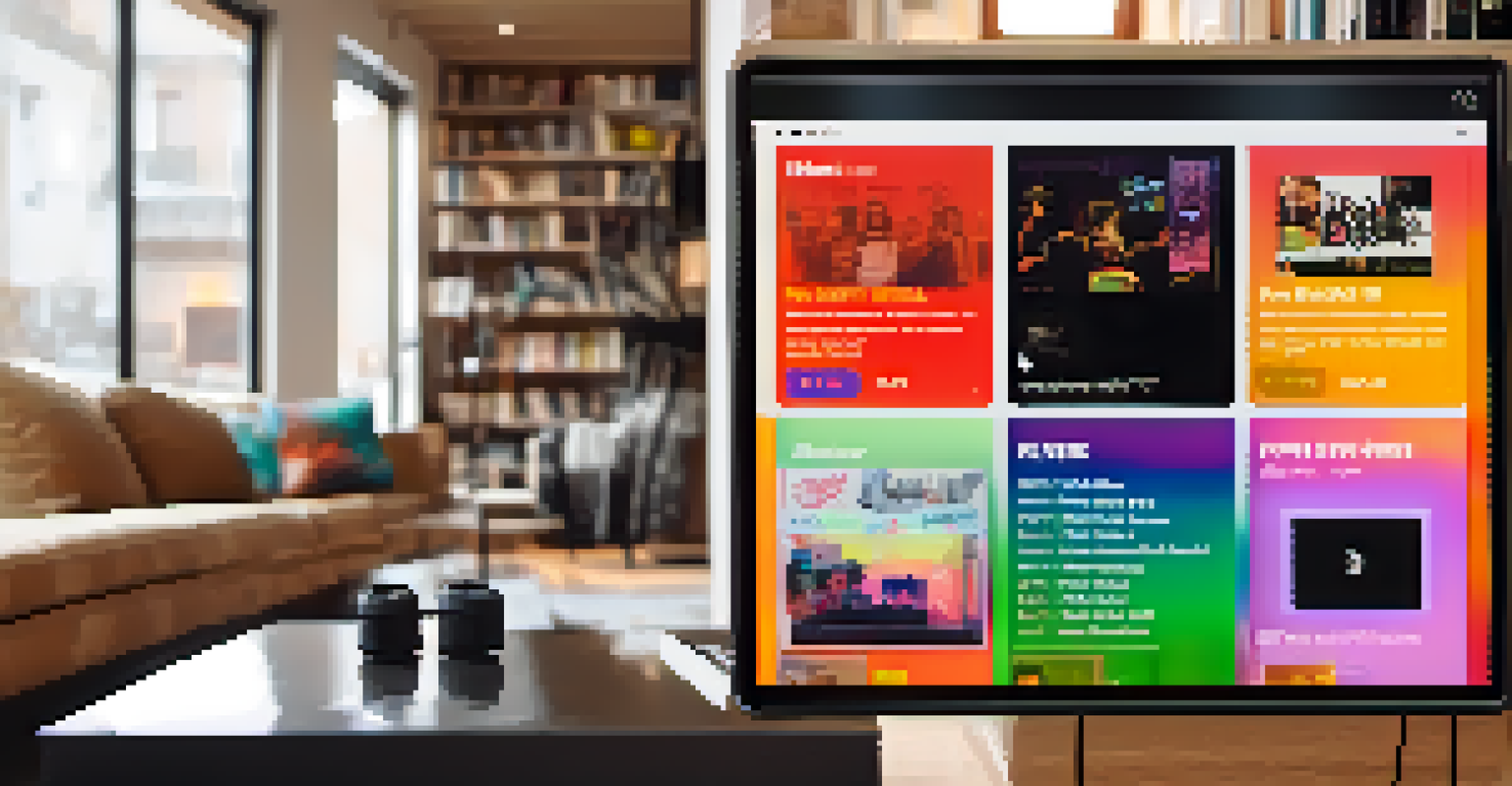The Rise of Independent Artists in the Digital Music Era

The Evolution of Music Distribution and Its Impact
The digital music era has dramatically transformed how artists distribute their music. Gone are the days when record labels held the key to an artist's success. With platforms like Spotify and SoundCloud, independent musicians can share their work directly with fans worldwide, bypassing traditional gatekeepers.
The music industry is a minefield; you have to be smart, savvy, and creative to navigate it successfully.
This shift not only democratizes music distribution but also allows artists to retain more control over their careers. They can choose how to release their music and what kind of marketing strategies to employ. As a result, many are finding their own unique paths to success, tailored to their individual styles and audiences.
For instance, artists like Chance the Rapper have leveraged these platforms to build substantial followings without signing to a major label. His story highlights how independent musicians can thrive in this new environment, using digital tools to connect with fans on a personal level.
Social Media: A Game-Changer for Independent Artists
Social media has become a vital tool for independent artists looking to promote their music and grow their fanbase. Platforms like Instagram, TikTok, and Twitter allow musicians to share their creative process, engage with fans, and showcase their personalities. This direct interaction fosters a sense of community and loyalty among listeners.

Consider how viral trends on TikTok can catapult a song to popularity overnight. Many emerging artists have found success by creating catchy snippets of their music that resonate with users, leading to increased streams and visibility. For example, Lil Nas X's 'Old Town Road' gained massive traction through social media before hitting the charts.
Artists Gain Control Over Music
Independent musicians now have more power to distribute their music and engage with fans directly, thanks to digital platforms.
Through regular updates and authentic content, artists can build a dedicated following that feels connected to their journey. This engagement not only helps with music promotion but also creates an emotional bond that can translate into long-term support.
Crowdfunding: Empowering Independent Music Projects
Crowdfunding has emerged as a powerful tool for independent artists to finance their projects without relying on traditional record labels. Platforms like Kickstarter and Patreon enable musicians to raise funds directly from their fans, making them stakeholders in the creative process. This approach fosters a sense of investment and collaboration.
Independent artists are not just making music; they're building cultures and communities around their art.
For instance, an artist may launch a campaign to fund their next album, offering exclusive rewards such as personalized merchandise or private concerts. This not only helps cover production costs but also creates a deeper connection with fans who feel involved in the artist's journey.
Moreover, crowdfunding can lead to a more sustainable model for music production, where artists can focus on creating quality content rather than chasing mainstream success. This shift allows for more diverse music styles and narratives to flourish, enriching the industry as a whole.
Streaming Services: The New Frontier for Independent Artists
Streaming services have revolutionized how music is consumed, and they play a significant role in the rise of independent artists. Unlike traditional sales models, streaming allows listeners to explore a vast catalog of music without financial barriers. This accessibility can lead to increased exposure for lesser-known artists.
Independent musicians can now get their music on platforms like Apple Music and Amazon Music with relative ease. This exposure can translate into a growing fan base, as listeners discover new sounds and styles they might not encounter otherwise. The more diverse the offerings, the richer the listening experience for everyone.
Social Media Boosts Artist Visibility
Platforms like TikTok and Instagram enable artists to promote their music and connect with fans, often leading to viral success.
Additionally, many streaming platforms offer curated playlists that can showcase independent artists alongside major names. Getting featured on one of these playlists can provide a substantial boost in streams and visibility, helping independent artists reach audiences they might never have tapped into otherwise.
The Importance of Personal Branding for Independent Artists
In today's digital landscape, personal branding is crucial for independent artists. Building a recognizable brand helps musicians stand out in a crowded market and allows them to convey their unique identity to fans. This process involves more than just a logo; it encompasses visuals, messaging, and overall aesthetic.
For example, artists like Billie Eilish have mastered the art of personal branding by creating a distinct image that resonates with her audience. Her style, music, and public persona are all interconnected, making her relatable and memorable. This cohesive branding not only attracts fans but also opens doors for collaborations and partnerships.
Moreover, a strong personal brand enables artists to communicate their values and mission effectively. Whether it's advocating for social issues or promoting sustainability, fans are often drawn to artists who share their beliefs, creating a deeper connection beyond just music.
Challenges Faced by Independent Artists Today
Despite the opportunities available, independent artists still face numerous challenges in the digital music era. One significant hurdle is the oversaturation of the market, as millions of artists vie for attention on streaming platforms and social media. Standing out can feel like an uphill battle, especially for newcomers.
Additionally, the financial aspect of being an independent artist can be daunting. While crowdfunding and streaming revenue provide some income, many artists struggle to make ends meet. The constant need for self-promotion and marketing can also drain resources and time that could be spent on creating music.
Crowdfunding Supports Music Projects
Crowdfunding allows independent artists to finance their projects directly through fan support, fostering deeper connections.
Furthermore, navigating the complexities of the music industry—like licensing, royalties, and contracts—can be overwhelming. Independent artists must equip themselves with knowledge and resources to ensure they are making informed decisions that protect their interests.
The Future of Independent Music in a Digital World
The future of independent music looks bright as technology continues to evolve. With advancements in AI and machine learning, artists may soon have access to even more powerful tools for music creation, marketing, and distribution. These innovations can help streamline processes and enhance the artist's ability to connect with fans.
Moreover, as the demand for authentic and diverse music grows, independent artists are poised to fill that gap. Listeners are increasingly seeking out unique voices and stories that reflect their own experiences, making room for a rich tapestry of independent music to flourish.

Ultimately, the rise of independent artists in the digital music era symbolizes a shift towards greater creativity, inclusivity, and collaboration. As more musicians embrace this landscape, audiences can expect an exciting range of sounds and styles that challenge the status quo and redefine what it means to be a successful artist.